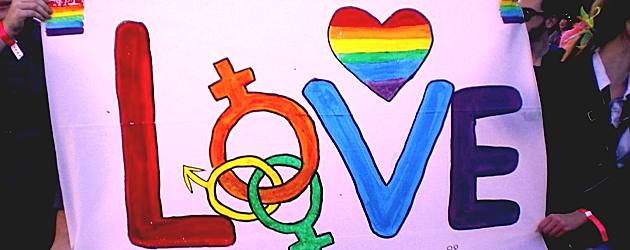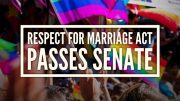 WASHINGTON, DC—The United States Supreme Court today declined to review the Tenth Circuit Court of Appeals decision striking down Utah’s marriage ban for same-sex couples, thereby permitting that decision to stand, as well as a similar decision from Oklahoma. The Court also denied review of decisions by the Fourth and Seventh Circuit Courts of Appeals, which had struck down marriage bans in Virginia, Indiana, and Wisconsin.
WASHINGTON, DC—The United States Supreme Court today declined to review the Tenth Circuit Court of Appeals decision striking down Utah’s marriage ban for same-sex couples, thereby permitting that decision to stand, as well as a similar decision from Oklahoma. The Court also denied review of decisions by the Fourth and Seventh Circuit Courts of Appeals, which had struck down marriage bans in Virginia, Indiana, and Wisconsin.
By denying review of the Kitchen v. Herbert case, the Court let stand the June 2014 decision by the United States Court of Appeals for the Tenth Circuit that found Utah’s ban on marriages by same-sex couples unconstitutional. Today’s decision means that same-sex couples in Utah, Oklahoma, Colorado, Kansas and Wyoming—all in the Tenth Circuit—have a constitutionally protected right to marry and to have their marriages treated equally. [pullquote]Today’s decision means that same-sex couples in Utah, Oklahoma, Colorado, Kansas and Wyoming—all in the Tenth Circuit—have a constitutionally protected right to marry and to have their marriages treated equally. [/pullquote]
The plaintiff couples in the Utah case are Kody Partridge and Laurie Wood, Derek Kitchen and Moudi Sbeity, and Kate Call and Karen Archer. The couples are represented by Peggy Tomsic of the Salt Lake City law firm Magleby & Greenwood, P.C., Shannon Minter of the National Center for Lesbian Rights (NCLR), Mary Bonauto of Gay & Lesbian Advocates & Defenders (GLAD), and former acting U.S. Solicitor General Neal Katyal of the law firm Hogan Lovells.
“We are thrilled by today’s decision, which means that same-sex couples are now equal citizens of this state,” said Derek Kitchen. “We are honored to be part of this historic moment and to know that as a result of today’s decision by the Supreme Court, never again will same-sex couples and their families be subjected to the discrimination and indignity that has caused so much harm to so many children and families over the years in Utah. This is a great day, and we are grateful to everyone who worked so hard to make it possible.”
“The Supreme Court’s decision today is a long-awaited victory not only for the courageous couples who brought this case, but for the entire state,” said Tomsic. “By allowing the Tenth Circuit’s ruling to stand, the Supreme Court has ensured that same-sex couples and their families in Utah will be treated equally and can have the same protection and stability that other families enjoy.”
Minter, who serves as NCLR legal director, said: “This is a huge step forward for Utah and the entire country. We are hopeful that the other cases pending across the country will also vindicate the freedom to marry so that all couples, no matter where they travel or live, will be treated as equal citizens and have the same basic security and protections for their families that other Americans enjoy.” [pullquote]“This is fantastic news for the citizens of Utah and the 10 other states who are no longer denied the ability to marry or respect for their marriages. It is also a powerful signal to the many other courts considering the issue that there is no reason to delay and perpetuate the harms to same-sex couples around the nation.”— Mary Bonauto,Gay & Lesbian Advocates & Defenders (GLAD)[/pullquote]
Added Bonauto: “This is fantastic news for the citizens of Utah and the 10 other states who are no longer denied the ability to marry or respect for their marriages. It is also a powerful signal to the many other courts considering the issue that there is no reason to delay and perpetuate the harms to same-sex couples around the nation.”
Kitchen was the first federal district court victory in a marriage equality case after the U.S. Supreme Court struck down the federal Defense of Marriage Act in United States v. Windsor, and the first such victory in a federal court of appeals. Since then, three other federal appeals courts also ruled in favor of the freedom to marry for same-sex couples.
The National Center for Lesbian Rights is a national legal organization committed to advancing the human and civil rights of the lesbian, gay, bisexual, and transgender community through litigation, public policy advocacy, and public education.
[From a News Release]







